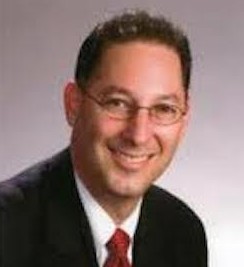Jury Selection
It can be argued that the selection of a good jury is more important than any facts of the case. I happen to believe that the facts of the case are equally important to a good jury selection. Many fellow criminal attorneys have claimed that no amount of evidence against their client would matter, as long as their jury selection is perfect; they believe they will come out on top over the long run, regardless of the circumstances in the case. Although this may very well be true, many lawyers unknowingly lack in their abilities to effectively pick a decent jury. The usual approach to jury selection, voire dire, focuses on asking jurors questions which fall into two categories: affiliative, and attitudinal questions. These questions are thought to show any conscious or unconscious preferences a prospective juror may have towards the prosecution or defense.
What are Affiliative and Attitudinal Questions?
Affiliative questions are focused on any groups that a prospective juror identifies with. These questions are supposed to provide the attorney with clues  as to where the prospective juror stands on various social issues. Alone, affiliative questions cannot usually be used as the basis for exclusion or selection of an individual. Although many people may believe it is easy to make assumptions about an individual based on a group identity, it is not a very accurate way to go about things; stereotypes are more often than not, incorrect.
as to where the prospective juror stands on various social issues. Alone, affiliative questions cannot usually be used as the basis for exclusion or selection of an individual. Although many people may believe it is easy to make assumptions about an individual based on a group identity, it is not a very accurate way to go about things; stereotypes are more often than not, incorrect.
Attitudinal questions are more focused on the overt attitudes of the prospective juror in regards to a variety of subjects, including any issues that may be relevant to the case. For example, an attorney may ask if they see a law enforcement officer as being more or less credible than a normal individual, or how they feel about the presumption of innocence until proven guilty, to name a few. Questioning an individual on their attitudes about certain religions, race, or how they feel about circumstantial evidence, is not uncommon.
What About Experiential Questions?
Asking an individual if they are able to relate to the experience of the defendant, or if they know anyone who has every been accused of a similar crime, may be more useful at determining who would be more open to the defense’s case; this is even more important in cases involving any expert testimony about mental states. For example, asking the prospective juror if they can relate to, or have ever “blacked it” when drinking, may be useful in a case involving alcohol. People who are able to relate to any experience with an altered state of consciousness will probably be more open to this idea if the defendant takes the stand, or an expert testifies on behalf of the individual. Questioning the prospective juror on whether or not they have ever acted impulsively, or behaved in a way they later regretted may apply to various types of criminal cases.
Asking specific, carefully worded questions that will relate to the trial may also prepare prospective jurors for any abnormal “mental states” that may be in question in testimony; if previously exposed to these ideas, a juror may find it more believable when a defendant or an expert takes the stand and refers to any similar bizarre mental states.
Legal Terms
Voire Dire: French for “to speak the truth.” The process through which potential jurors from the venire are questioned by either the judge or a lawyer to determine their suitability for jury service. Also the preliminary questioning of witnesses (especially experts) to determine their competence to testify.

